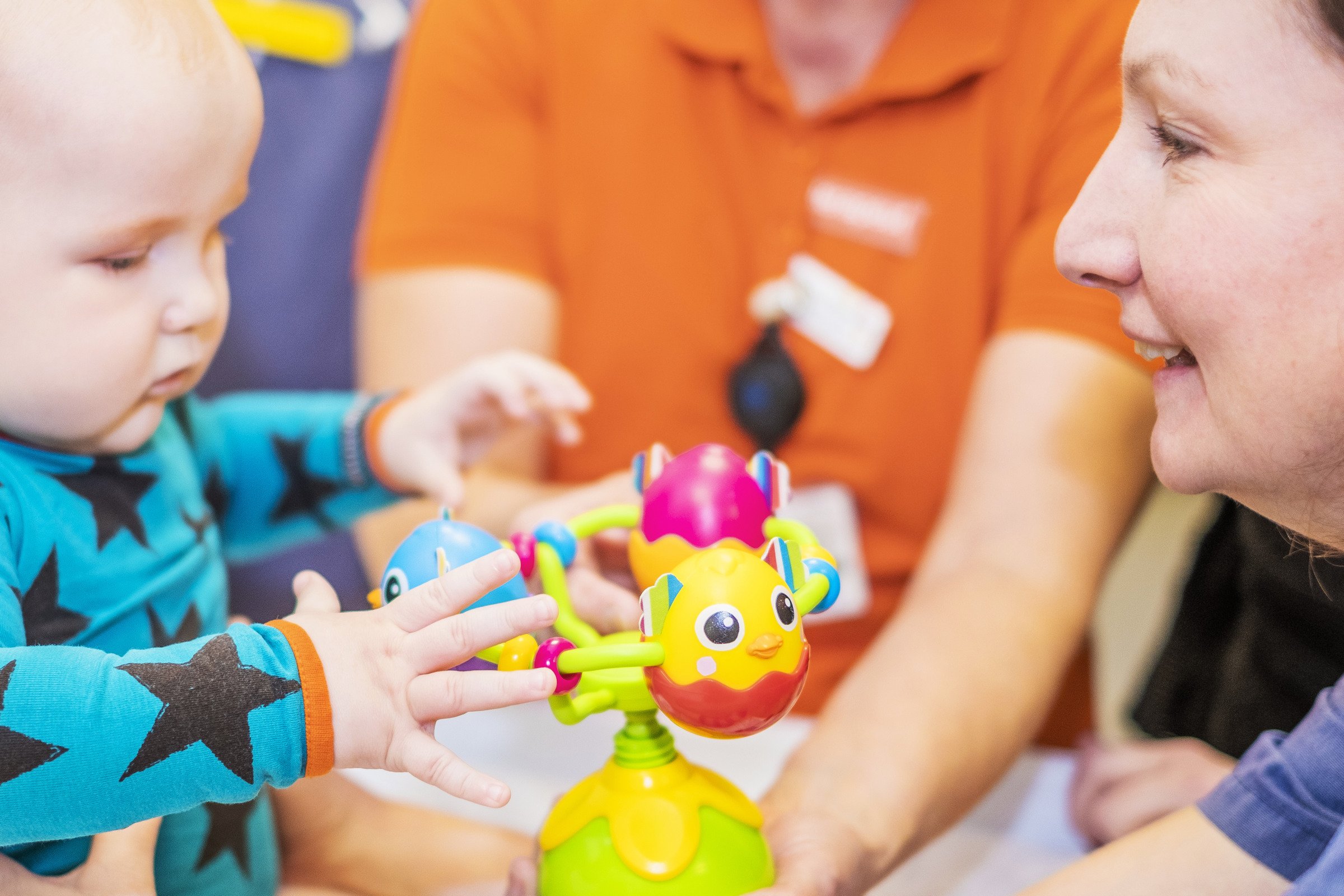Tube feeding
Our nutrition nurses help patients in need of nutrition through nasogastric or nasojejunal tubes, for example, patients with cerebral palsy or other neurological damages that prevent the patient from being able to swallow food. In patients where the need for nutrition help is only temporary, tube feeding via the nose is preferable, and to those children, we offer nasogastric or sometimes nasoduodenal feeding tubes. In patients needing nutritional treatment for a long time, we usually recommend gastrostomy for feeding, which means a very small opening in the belly is created, a nutrition port. through which nutrition can be given. Our nurses teach caregivers how to keep the gastrostomy clean and how to change the gastrostomy button every 2-3 months.
Feeding difficulties
When prematurely born babies have had nutrition via tube feeding during their hospital stay at the neonatal ward due to prematurity or other complications at birth, it is important to start early with feeding through the mouth parallel to tube feeding. If mouth feeding is not started early, babies may have difficulties learning and accepting food through the mouth. In those cases, we offer “eating training.” This means that specialized nutrition nurses and speech therapists support caregivers to help feed their babies. In some cases, dieticians and psychologists are also necessary to help with the training. The staff trains parents so that they feel comfortable and secure with feeding their children. Our team also offers eating observations to look at the behavior and see how the babies are developing their eating skills. We work actively together with the team at the neonatal units, and increased awareness and cooperation have led to fewer neonatal patients with eating difficulties.
